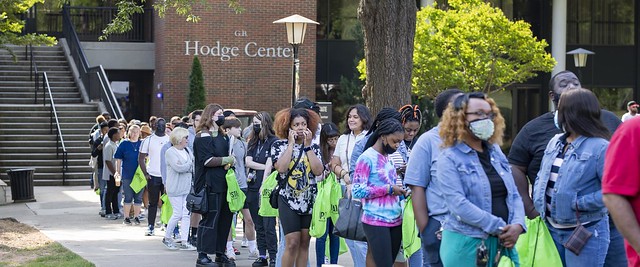
By Kristen Stevenson
The Back to School Buzz is in the air! School supplies, backpacks, and nervous students abound while faculty wrap their minds around a new year, finish syllabi, and create content in Blackboard. For those of us who teach first-year students, we are also planning how to guide students to be successful in college, career, and life.
Teaching first-year students could present a new challenge. They are eager, nervous, and walking into a brand new world. It helps to remember what it was like when you first went to college–setting the alarm to get to class on time, learning where the buildings are, and finding your place in a new community. The following are a set of soft skills that are particularly important for new students and a gentle reminder for us to keep a beginner’s mindset when we work with them.
Motivation and Commitment. There are hard days, the ones where students want to give up. These days, though, we have to remind students that we hear them, understand their struggles, and that the hard work is worth the effort (Stebleton & Soria, 2013).
Enthusiasm. This is an exciting time! Students will have favorite courses, and that enthusiasm will help carry them through the less desirable topics. You may need to remind them that you also had courses that you loved and hated.
Goals. What is the student’s big Why? Why are they coming to college, and what do they hope to get from a college education? What are their long-term plans? Knowing a student’s long-term goal helps when their motivation is lagging.
Talents. It is much easier to play to strengths rather than fight against weaknesses. Help students use their talents to be successful in your class. This may be in the way that they take notes, study, or interact with you.
Attendance. We know attendance and grades are directly correlated (Crede et al., 2010; Gump, 2010; Kassarnig et al., 2017) but students may need a reminder. Challenge yourself to think of ways to engage students so that they would hate to miss a single day. Flexible attendance and late policies can offer students the chance to be human without lowering standards in your course.
Preparation. Students have no idea how to prepare for class when they begin college. They may not even know you should highlight and make notes in a textbook. What tips can you give your students to help them in this process? Should they watch videos, read materials, or engage in an activity? How will this help them once in class, especially if they are working through complex content they may not understand? Saundra McGuire’s excellent book Teach Students How to Learn, comes with a series of presentation resources you can share in the classroom to get these conversations started in your classes.
Interpersonal Skills. A big part of attending college is learning to interact with people you may never encounter otherwise. While students hate the dreaded group project, the benefits of learning how to work with others are invaluable for work. Interpersonal skills are found in discussions, group projects, and debates. Another idea is to ask students to create and agree to a communication ground rules document.
Thinking Skills. Most first-year students are not used to thinking for themselves in a classroom environment, especially if these thoughts contradict their professor. They will need support and practice to grow this skill set (Katrevich & Arugete, 2017).
I truly love this time of year! I don’t sleep the night before the first day of class, get hyped by the energy on campus, and pinch myself for being paid to go to school every day. May this set of soft skills remind you to be kind to your students as they transition to college and to enjoy your part of their journey.
